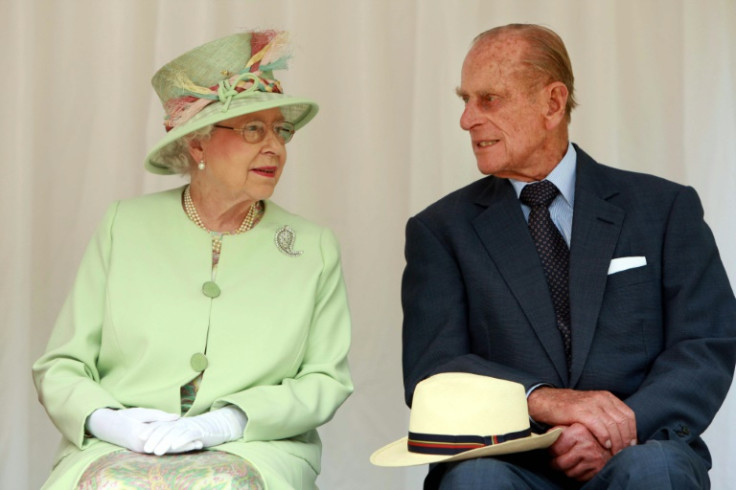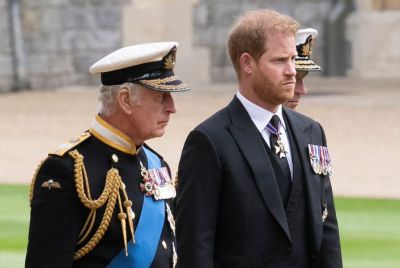'She Refused to Support Harry': Meghan Markle's Ambition 'Irritated' Prince Philip, Royal Author Claims
KEY POINTS
- Prince Philip made lifelong sacrifices for the monarchy—sacrifices he expected others to make too
- The late Duke of Edinburgh reportedly couldn't understand why Meghan wouldn't give up her career to support Harry, just as he had done for Queen Elizabeth.
He was a prince by birth, a naval hero by training, and a consort by duty. Prince Philip, Duke of Edinburgh, spent more than seven decades walking two steps behind Queen Elizabeth II - not out of weakness, but as a symbol of commitment. That lifetime of sacrifice and loyalty to the monarchy helps explain why, according to one royal expert, the late Duke was privately 'irritated' by Meghan Markle's refusal to follow the same path of self-denial.

Royal biographer Ingrid Seward, editor-in-chief of Majesty magazine, revealed that Prince Philip was 'very, very disappointed' in Meghan's reluctance to give up her acting career and fully support Prince Harry.
'He gave up his naval career in order to stand by the Queen and help the monarchy,' Seward told Sky News. 'And why can't Meghan just give up her acting career, support her husband, and support the monarchy?'
The comment, first made in 2020 but resurfacing amid renewed royal debate, underscores how deeply Philip believed in the unspoken code of royal service. In Meghan, he reportedly saw a consort unwilling to play by the traditional rules.
A Life of Sacrifice
To understand Philip's frustration, one must examine the sacrifices he made for the Crown.
Born Prince Philip of Greece and Denmark, he belonged to a royal family exiled from their homeland. Before marrying then-Princess Elizabeth in 1947, he renounced his titles, became a naturalised British subject, and adopted his mother's family name, Mountbatten. He gave up his military ambitions, identity and heritage for a role that demanded constant public duty – but little recognition.
His personal sacrifices extended to his children's surnames. When the royal family chose to keep 'Windsor' as their official name, Philip reportedly said: 'I'm the only man in the country not allowed to give his name to his children.'
Despite these struggles, he committed himself to modernising the monarchy. He supported over 800 charities and launched the Duke of Edinburgh's Award, helping millions of young people worldwide. At the time of his death in 2021, he had become the longest-serving consort in British history.
Two Consorts, Two Worlds
Prince Philip reportedly struggled to understand why Meghan did not adopt a similar approach. When she married Prince Harry in 2018, she made it clear that she wanted to retain her voice and champion causes such as gender equality and mental health.
This independence clashed with the traditional, self-effacing role consorts like Philip – and later Kate Middleton – embraced.
Tensions escalated in January 2020 when Harry and Meghan announced they would 'step back' from royal duties. According to Tatler, Queen Elizabeth summoned senior royals to Sandringham for crisis talks. Prince Philip, though present on the estate, chose to leave before the meeting began. According to Seward, he wanted no part in the discussions.
'It irritated him hugely,' she said. 'He simply didn't want to get involved.'
Meghan, who remained in Canada with baby Archie, was reportedly upset at being excluded. The move highlighted the widening gap between the Sussexes and the monarchy's older generation, who prioritised hierarchy and discretion over personal autonomy.
A Clash of Values
Philip's irritation reflected more than just a generational divide. He came from a Europe shaped by war and duty, where royal service was viewed as a lifelong responsibility. Meghan and Harry, by contrast, represent a new kind of public figure – globally influential, media-savvy and determined to carve out their own path.
Meghan's decision to step away from royal life may have resonated with a younger audience, but to Philip, service meant surrendering personal ambition for a higher cause. He had done it for Elizabeth and for the monarchy – and could not understand why Meghan would not do it for Harry.
Legacy and Modern Monarchy
Long after his death, Prince Philip's legacy continues to be measured against the backdrop of royal evolution. His unwavering dedication to the monarchy stands in sharp contrast to the Sussexes' breakaway. Whether viewed as a paragon of duty or a relic of tradition, Philip embodied a model of royal service now under scrutiny.
In the end, the contrast between Philip and Meghan symbolises the monarchy's ongoing transformation: from sacrifice to self-determination.
© Copyright IBTimes 2025. All rights reserved.



















